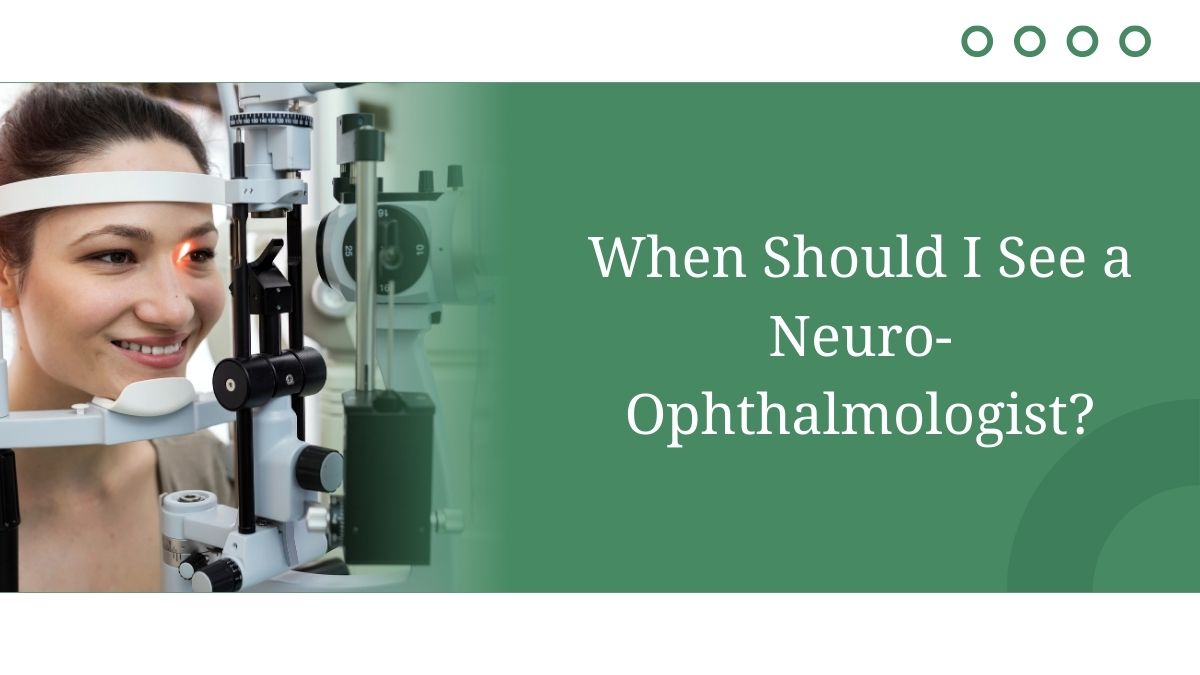When Should I See a Neuro-Ophthalmologist?

In the labyrinth of medical specialties, neuro-ophthalmology stands as a unique intersection between neurology and ophthalmology. While many individuals are familiar with ophthalmologists who specialize in vision correction or eye surgeries, the role of a neuro-ophthalmologist might be less understood. However, for those encountering complex eye issues that may stem from neurological origins, consulting a neuro-ophthalmologist can be crucial. In this article, we’ll delve into the realm of neuro-ophthalmology, exploring when it becomes imperative to seek their expertise.
Understanding Neuro-Ophthalmology
It is important to grasp the essence of this specialized field before determining when to consult a top ophthalmologist in Delhi. Neuro ophthalmology deals with visual problems that are related to the nervous system, particularly those affecting the optic nerve and brain. These issues often manifest as vision loss, abnormal eye movements, or visual disturbances, which can be indicative of underlying neurological conditions.
When to Consider a Neuro-Ophthalmologist
Persistent Vision Changes: If you experience persistent vision changes, such as blurriness, double vision, or visual field defects, it’s essential to seek professional evaluation. While such symptoms could be attributed to various eye conditions, they might also signal neurological disorders that require specialized care.
Unexplained Eye Pain: While eye pain can often be associated with eye strain or minor irritations, persistent or severe eye pain without an apparent cause warrants investigation. Neuro-ophthalmologists are adept at discerning whether such pain is a symptom of conditions like optic neuritis or increased intracranial pressure.
Optic Nerve Disorders: Conditions affecting the optic nerve, such as optic neuritis, optic neuropathy, or optic disc swelling (papilledema), necessitate the expertise of a neuro-ophthalmologist. These disorders can result from various underlying causes, including multiple sclerosis, tumors, or vascular issues.
Visual Field Defects: Visual field defects, characterized by areas of diminished or lost vision, can be indicative of neurological pathologies. Conditions like pituitary tumors or strokes may lead to specific patterns of visual field loss, which require precise assessment by a neuro-ophthalmologist.
Abnormal Eye Movements: Involuntary eye movements, known as nystagmus, or other abnormal eye movements may indicate neurological abnormalities. Neuro-ophthalmologists possess the expertise to decipher the underlying causes of such ocular motor disorders, which could range from neurological conditions to medication side effects.
Neurological Symptoms with Ocular Manifestations: Neurological symptoms like headaches, dizziness, or balance issues accompanied by ocular manifestations demand comprehensive evaluation by a neuro-ophthalmologist. These symptoms might be indicative of conditions like brain tumors, intracranial hypertension, or multiple sclerosis.
Consulting the Best Neuro-Ophthalmologist in Delhi
It’s easy to find a reputed best eye surgeon in Delhi, requires more research. Seek recommendations from trusted healthcare professionals, review patient testimonials, and assess the neuro-ophthalmologist’s credentials and experience in dealing with complex neurological eye disorders.
Conclusion
In the intricate network of eye health and neurological well-being, the expertise of a neuro-ophthalmologist can be invaluable. By recognizing the signs that warrant their consultation, individuals can ensure timely intervention and management of conditions affecting both vision and the nervous system. Remember, when it comes to your vision and neurological health, proactive care and expert guidance are paramount.

